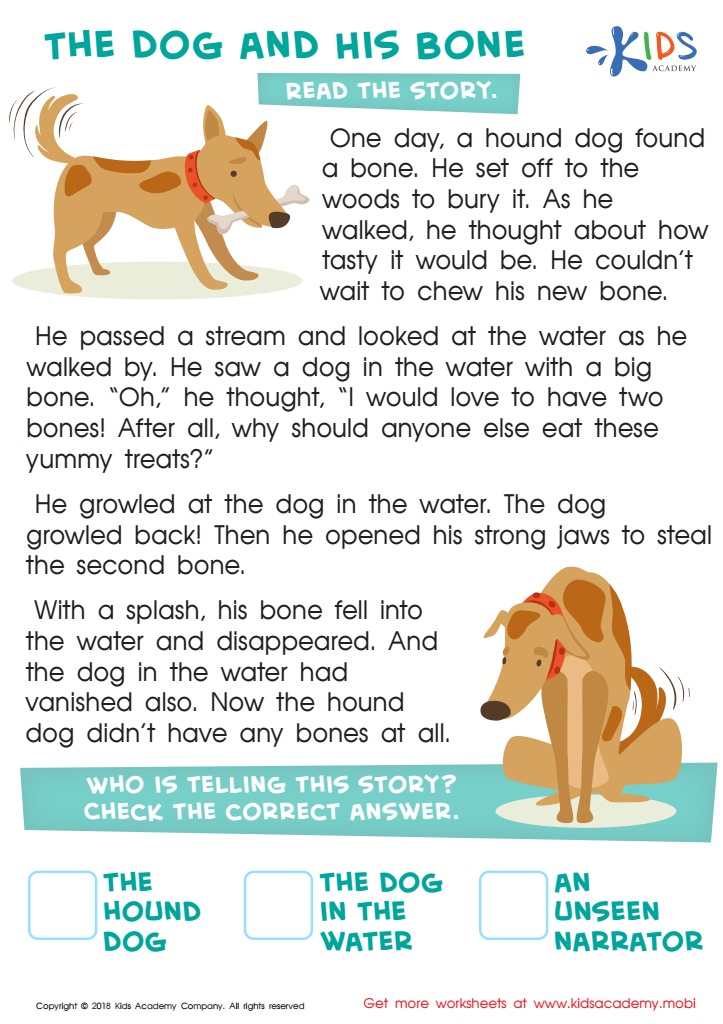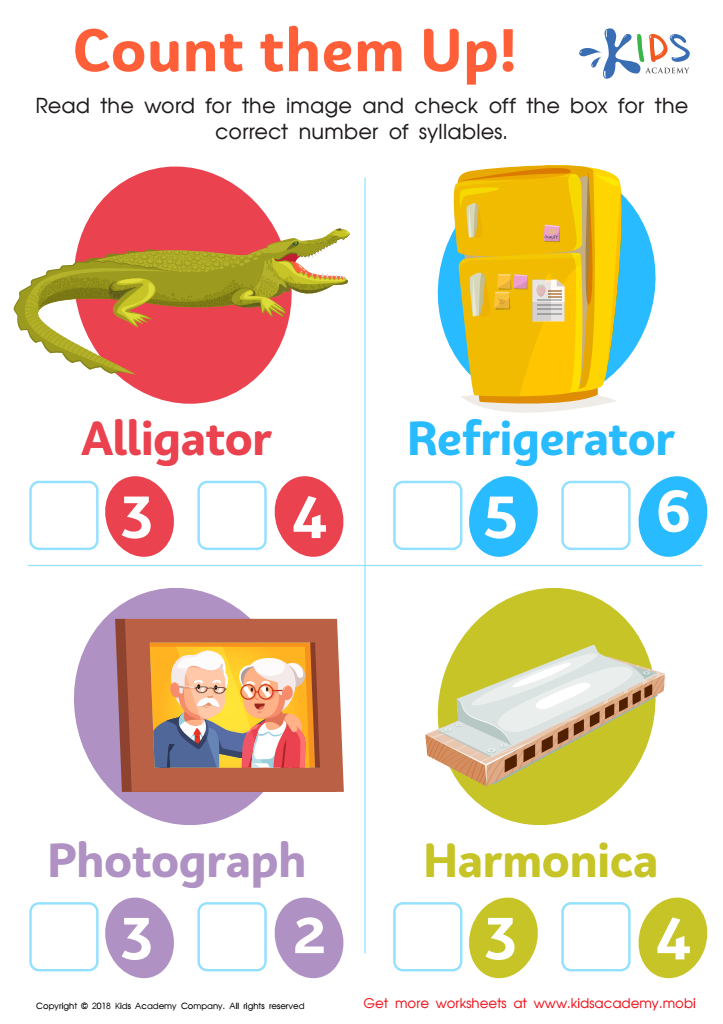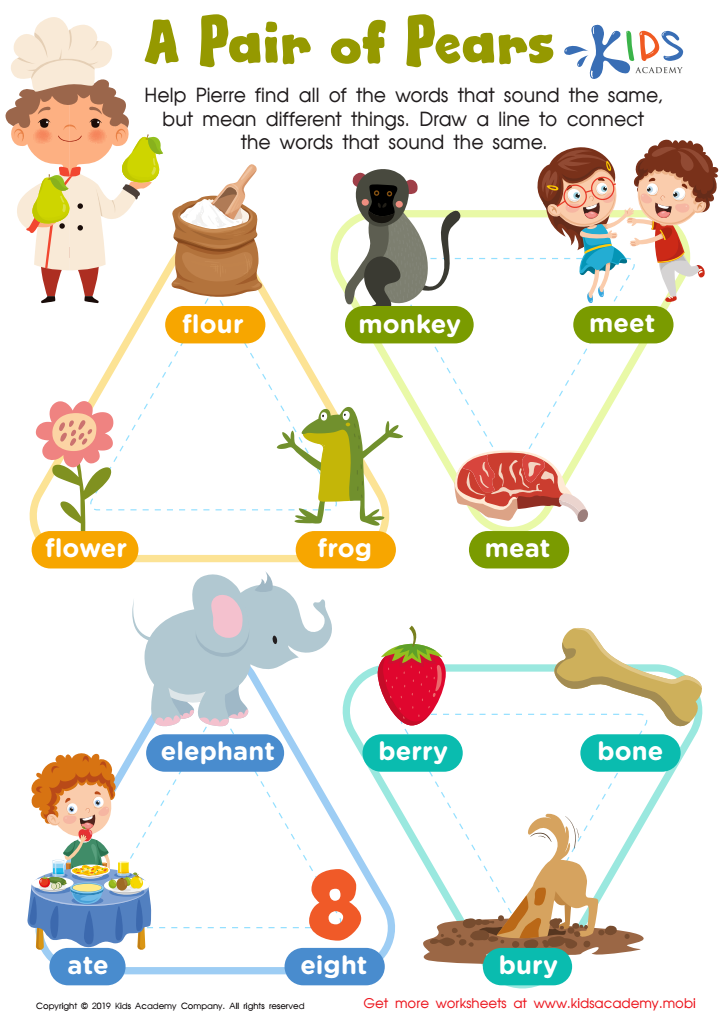Number Recognition Normal Building Vocabulary Worksheets for Ages 5-8
4 filtered results
-
From - To
Enhance your child's learning journey with our Number Recognition Building Vocabulary Worksheets tailored for ages 5-8. These engaging worksheets are designed to introduce and strengthen foundational math skills while expanding vocabulary. Each printable sheet combines fun activities, such as coloring, matching, and tracing numbers, to make learning interactive and enjoyable. Ideal for home or classroom use, our worksheets aid in number recognition, word association, and improve overall reading skills. Boost your child's confidence and lay the groundwork for future academic success with Kids Academy's expertly crafted educational resources.


Fish Worksheet


The Dog and His Bone Worksheet


Count Them Up Worksheet


Pair Pears Worksheet
Parents and teachers play a crucial role in developing a robust foundation for children's lifelong learning, and number recognition and building vocabulary are vital components during the ages of 5-8. Understanding numbers and vocabulary directly impacts a child's academic success and cognitive development.
Number recognition is fundamental because it forms the basis for arithmetic and advanced math skills. When children recognize and understand numbers, they can more easily grasp concepts like counting, addition, subtraction, and even more complex problem-solving later on. It also enhances their logical thinking, pattern recognition, and ability to follow sequences, which are critical skills in everyday life.
Building a strong vocabulary at an early age is equally important. A rich vocabulary equips children with the language skills necessary to express themselves clearly, understand instructions, and engage in effective communication. It also has a direct impact on reading comprehension and overall literacy. Through a broad vocabulary, children are better able to understand stories, follow along in class discussions, and gain new information, boosting their confidence and academic performance.
By focusing on number recognition and vocabulary development between ages 5-8, parents and teachers not only support the child's educational journey but also contribute to their overall cognitive growth and readiness for future academic challenges.
 Assign to My Students
Assign to My Students


















.jpg)












